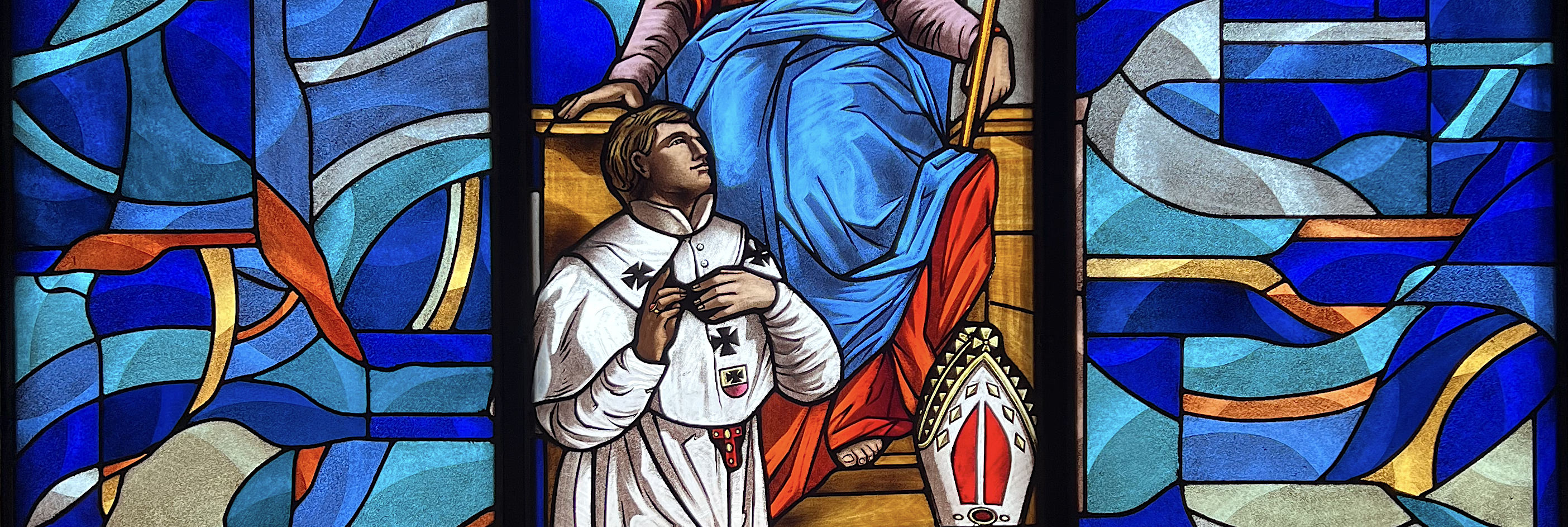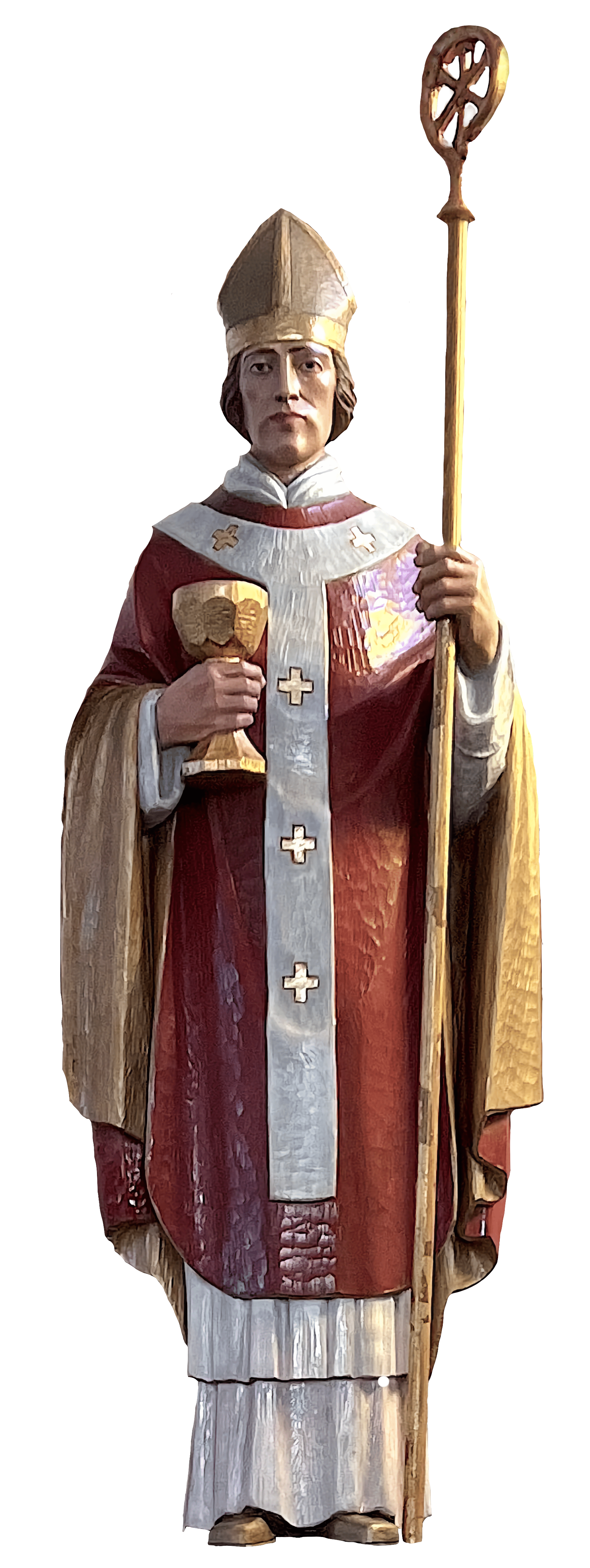
St. Norbert of Xanten (c. 1075-1134)

St. Norbert of Xanten, born around 1080 on the left bank of the Rhine near Wesel, had a distinguished lineage, being related to the imperial house of Germany and the house of Lorraine. He possessed a stately bearing, a penetrating intellect, and a tender, earnest heart that would eventually lead him to become an apostle.
Initially, Norbert held a prominent position as the almoner of Emperor Henry V's court, but he allowed himself to indulge in pleasure and worldly pursuits. However, a life-changing incident occurred when he was overtaken by a thunderstorm while riding to Vreden. Struck by a thunderbolt, he was thrown from his horse and lay unconscious for almost an hour. This near-death experience humbled him, and Norbert subsequently embraced a life of penance and renounced his courtly appointment.
Seeking guidance, Norbert placed himself under the direction of Cono, the Abbot of Siegburg. In gratitude to Cono, Norbert founded the Abbey of Fürstenberg and endowed it with a portion of his property. In his mid-thirties, Norbert felt a calling to the priesthood and was ordained by the Bishop of Cologne. He celebrated his first Mass in Xanten, delivering a sermon on the transient nature of worldly pleasures and man's duties towards God.
During his journeys, Norbert faced insults and ridicule from some young clerics, but he bore them with remarkable patience. He often sought counsel from holy men like Ludolph, a hermit-priest, and established a reputation as an earnest preacher. Pope Gelasius granted him the faculties to preach wherever he saw fit.
At Valenciennes, Norbert met Burchard, Bishop of Cambray, who became his companion in apostolic journeys across France and Belgium. After the death of Pope Gelasius, Norbert founded the Abbey of Prémontré in a lonely, marshy valley, with Hugh of Fosses, Evermode of Cambray, Antony of Nivelles, and others as his first disciples. This marked the beginning of the Premonstratensian Order.
The order flourished rapidly, and women also expressed their desire to become members. Blessed Ricwera, the widow of Count Raymond of Clastres, became Norbert's first spiritual daughter, and many other women followed her example.
Norbert's reputation as an effective preacher grew, and he was called upon to combat heresies in the Low Countries, leading to the abjuration of many heretics and the return of stolen and profaned Sacred Species.
The order continued to expand, and Norbert was requested to establish new houses in various dioceses. With the approval of the pope's legates, the order received confirmation from Pope Honorius II in 1126.
Despite his failing health, Norbert remained active and participated in efforts to promote Pope Innocent II's cause over the antipope Anacletus. He accompanied Emperor Lothair to Rome and back to Germany, serving as his chancellor and adviser.
In 1134, Norbert's health deteriorated further, and he was carried to Magdeburg, where he passed away on the Wednesday after Pentecost. Emperor Lothair ordered his burial at the Norbertine Abbey of St. Mary in Magdeburg, where numerous miracles were attributed to his intercession.
St. Norbert was canonized by Pope Gregory XIII in 1582, and his cult spread throughout the Catholic Church. In 1627, his remains were transferred to the Abbey of Strahov in Prague, where he was proclaimed the Patron and Protector of Bohemia.
Throughout his life, St. Norbert exhibited a profound commitment to faith, preaching, and penance, leaving behind a lasting legacy through the Premonstratensian Order he founded.
